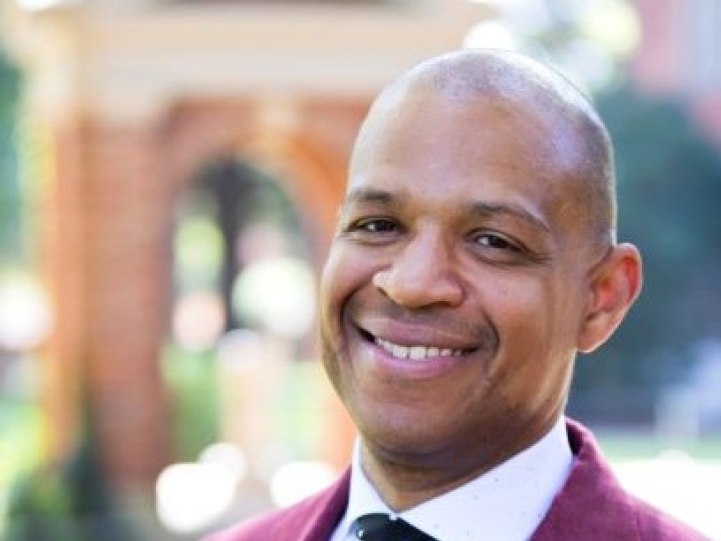
History Lessons
Civic Engagement Policy and Advocacy Equity, Inclusion and Social Justice AVP or "Number Two" Senior Level VP for Student Affairs
February 13, 2024
Black history is important.
Black history is and will always be important. Black history is important not just because of the political climate of the 2023-2024 academic year, which has seen challenges over book bans and legislative and political questions about what is being taught in our classrooms. Black history is important because it is our history: the history of our campuses and our institutions.
I offer an example: history was made in 1922 when Washington & Jefferson College, an undergraduate institution that enrolled just 450 students at the time, played the University of California at Berkeley in college football’s Rose Bowl Championship. The game ended in a 0-0 tie, the only scoreless tie in the history of Rose Bowl Championship game. Another important historical fact about this game: it was the first year a Black quarterback played in the Rose Bowl Championship. His name was Charles West, and he played for the Washington & Jefferson College football team.
Charles West was an extraordinary athlete. He won the Pentathlon at the Penn Relays twice: first in 1923, beating competitors from institutions such as Georgetown University and University of Florida, and again in 1924, in a field that included athletes from the Naval Academy, Georgetown, University of Chicago, and University of Pittsburgh. If not for an injury, West would have competed in the 1924 Olympics as a member of the United States track and field team. He was drafted by a professional football team that year but opted instead to pursue a career in medicine. He graduated from Howard University Medical School in 1928.
When I worked at Washington & Jefferson College, stories about Dr. West’s remarkable life and the story of his team’s appearance in the Rose Bowl Championship were told at new student orientation to inspire students and introduce to them the institutional value of integrity. During my time at Washington & Jefferson, I gained more knowledge about Dr. West’s life from curious students who studied his college years and career afterward in courses and through independent research. These students taught us about Dr. West’s intrinsic motivation, personal drive, and perseverance and his lifelong commitment to community service; they also shared what they discovered about the racism he encountered. Researching Dr. West’s life helped students understand racial discrimination and segregation and empowered them to constructively critique how we talked about integrity and other institutional values.
The significance of Dr. West’s collegiate accomplishments and his career and community contributions after college are fully appreciated - and appropriately honored - by acknowledging, not ignoring, his racial identity, or otherwise treating his race as incidental. Dr. West’s life story is Black history, and that history – that Black history – is an inextricable part of Washington & Jefferson’s history and its ongoing legacy of lifelong learning and engaged citizenship.
When Dr. West was finally enshrined into the Rose Bowl Hall of Fame in 2017, I had just started working at my current institution, Davidson College. In my first semester at Davidson, the college established a Commission on Race & Slavery to seek a fuller understanding of the institution’s history. I was honored to serve on the Commission and work alongside students, faculty, alumni, and community leaders who helped lay the foundation for Davidson’s current efforts on education and reconciliation. Even before the Commission launched, faculty, students, and an outstanding archives team in our library were conducting impressive and important research on the lives of enslaved persons on our campus. This archival, intellectual, and exploratory work has been ongoing, and now we know the bricks used to build the original campus were made by hand by enslaved men.
In March 2023, Davidson College announced plans to install a large sculpture in a prominent campus location, part of a permanent memorial site, to commemorate the labor of enslaved people who helped build the college and who farmed the college’s land and acted as servants for its students and faculty. This is just one of several initiatives included in the college’s education and reconciliation work. This work isn’t “woke” or “performative.” It’s rigorous, authentic, inspired by aspirational goals for teaching and learning, and tethered to Davidson’s institutional dedication to quest for truth.
I have seen students from all racial backgrounds engaged in this work. I am grateful for their efforts, and grateful to the archivists, librarians, faculty, student affairs colleagues, and many other staff members who have guided, mentored, and supported these students. I would not understand where I work, nor could I truly appreciate where we are headed as an institution, without their collective research, programming, and community engagement.
I have found new meaning in my role as an institutional leader thanks to the Black history lessons students and campus colleagues have taught me. Those history lessons, especially the hard ones, are an integral part of my personal reflection, resistance, resilience, and imagination. And in those lessons, I have found the motivation to participate in a shared campus commitment to “be better today than yesterday, better tomorrow still.”

Byron McCrae serves as the vice president for student life & dean of students at Davidson College and is a member of the NASPA James E. Scott Academy Board.